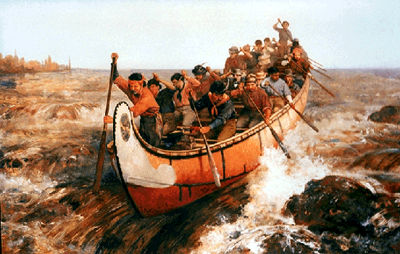La belle, si j’avais su!
| Strophe | Rhyme | Line | Text |
| A 1 | a | 1 | La belle, si j’avais su, la belle, si j’avais cru, |
| a | 2 | Que jamais nos amours en aurions parvenu. | |
| A2 | a | 1 | La belle, si j’avais su, la belle, si j’avais cru, |
| a | 2 | Que jamais nos amours en aurions parvenu. | |
| B1 | b | 3 | J’aurais partout dépensé mon argent, |
| b | 4 | Le soir au cabaret avec tous tes parents. | |
| B2 | b | 3 | J’aurais partout dépensé mon argent, |
| b | 4 | Le soir au cabaret avec tous tes parents. | |
| A1 | a | 5 | Si tu l’as défoncé, c’est parce que tu l’as bien voulu. |
| a | 6 | Combien de fois je te l’ai défendu. | |
| A2 | a | 5 | Si tu l’as défoncé, c’est parce que tu l’as bien voulu. |
| a | 6 | Combien de fois je te l’ai défendu. | |
| B1 | c | 7 | Combien de fois nous avons veillé tous deux |
| c | 8 | Le soir à la chandelle comme de braves amoureux. | |
| B2 | c | 7 | Combien de fois nous avons veillé tous deux, |
| c | 8 | Le soir à la chandelle comme de braves amoureux. |
Rhyme Analysis: Each four-line stanza features two lines that repeat, of the monorhyme type and “pauvre” quality. The second half begins with the same rhyme at the beginning, but then brings in a different rhyming sound (i.e., ab/ac).
The text seems to be split into two parts, sung by two different singers. The first two stanzas are sung by the man, and the last two are sung by the woman. These two singers are presumably meant to embody two lovers who are breaking up. As both singers do not sing back and forth to each other, but rather in a long form monologue one after another, it is likely that the text reflects the point of view of each lover after the relationship has ended.
The first two stanzas, sung by Allan Mills (embodying the man), is mournful about ending his relationship with his lover. He sings about how he would have tried harder to impress her parents, and splurged them with nights at the cabaret, had he known their relationship was leading to an end.
The second half is sung by Helene Baillargeon (embodying the woman) who sings about the likely reasons why she has decided to end the relationship. In the first stanza, she sings about how it seems her ex-lover has gotten himself in trouble by getting into one too many fights. The last stanza indicates that their relationship was already in troubled waters and had to be kept secret.
There is a good indication that this may have been a drinking song; despite the text being about two lovers breaking up, it is light-hearted and comical. This is especially evident in the second stanza when the man sings that he would have wooed his partner’s parents by taking them to a cabaret; a seemingly counterintuitive decision. Also, in contrast to the subject, the rhythm of the music is bouncy and set in a major key.
Suggested sources:
- CANADA – Helene Baillargeon / Alan Mills: Chansons d’Acadie (Folk Songs of Acadia). Naxos Music Library. (n.d.). https://ubc-naxosmusiclibrary-com.eu1.proxy.openathens.net/world/catalogue/829410970662
- King, B. N., & Panneton, H. (2007, December 20). Hélène Baillargeon | the Canadian encyclopedia. The Canadian Encyclopedia. https://www.thecanadianencyclopedia.ca/en/article/helene-baillargeon-emc
Related contents:


